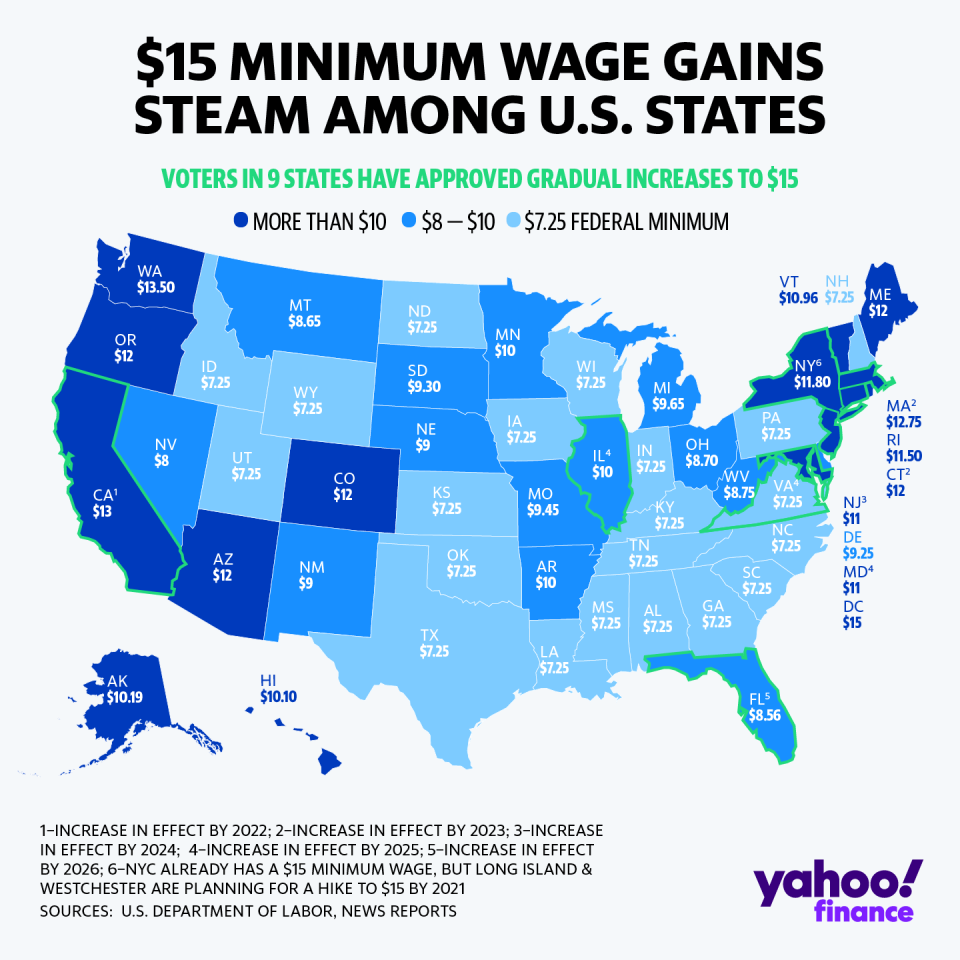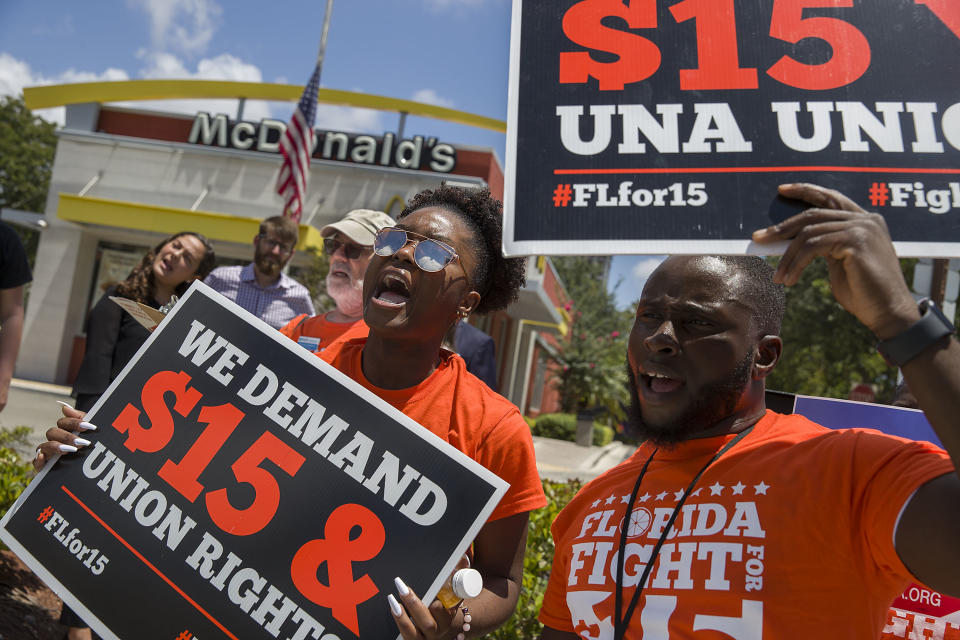Election 2020: Florida joins growing list of states moving to $15 minimum wage
Florida voted on Tuesday to increase its minimum hourly wage to $15, adding fuel to a growing national movement that aims to raise the federal minimum wage from $7.25 per hour.
The hike to $15 in the Sunshine State will be implemented incrementally until it’s fully effective by September 30, 2026.
The minimum wage will increase to $10 per hour at the end of September 2021, and it would continue to increase each September until it reaches the $15 threshold. After that, the minimum wage would be adjusted annually for inflation as it is now. The new wage will also be reflected in the state’s constitution.
Florida joins a league of states, including New York and Illinois, that has raised their minimum wages to $15. The state also leans Republican — as evidenced by its support for Donald Trump in the 2020 race — showing that support for such an initiative goes beyond party lines. At the same time, Florida relies heavily on tourism — so the measures enacted to curb the spread of the coronavirus have hit its workers hard.

Other states already planning for $15
Other states that have approved the same $15 an hour minimum wage increase include California, Connecticut, Illinois, Maryland, Massachusetts, New Jersey, New York, and Virginia. The District of Columbia is also on this list of states with $15 an hour.
In Portland, Maine, about 60% voters also approved a citizen referendum initiative on Tuesday to increase the minimum wage to $15 over the next few years, one local outlet reported.
That will increase the city’s minimum wage from $12 an hour, which is the state limit, by 25%. The city also voted for hazard pay during emergencies.
Florida’s case also underscores that the progressive issue has broad support from voters, even in a Republican-leaning state, with 60.80% of voters backing the amendment, according to Ballotpedia.org. That echoes research from Pew in July 2019 showing that two-thirds of Americans support increasing the minimum wage.
Federal minimum wage stuck at $7.25
The federal minimum wage has been at $7.25 since 2009 — the longest ever the country’s gone without an increase.
Senate Republicans said they won’t consider a bill to raise the federal minimum wage to $15. Trump said during a previous debate that he’d consider it, but also implied it will have to be state-by-state.
Two additional states — Wyoming and Georgia — have a state minimum wage below the federal level, but workers there are entitled to the federal minimum wage unless their employer is not covered by the Fair Labor Standards Act.
An increase in minimum wage could help the broader economy, experts said, even though it may bring additional costs to small businesses.
In a paper from the American Enterprise Institute, which examined data from the American Community Survey (ACS) and Current Population Survey (CPS) in 2016, large increases in statutory minimum wages reduced employment among individuals — particularly for those with low levels of experience and education — by just over 2 percentage points.

Boost to households
In Florida, the commitment to the $15 an hour hike is significant: The Florida Policy Institute, a left-leaning think tank, stated in a September report that 2.5 million people in the state will see their wages increase.
And by 2026, these workers would see a $2-per-hour bump in their pay — adjusting for inflation — which translates to an annual income increase of $3,300.
“We are so excited that Floridians did the right thing, and voted for our economy,” Kristine Ownley and Leigh Anne Balzekas, co-owners of the Tampa-based The Disco Dolls Studio, told Yahoo Finance.
The company had campaigned for the $15 increase — along with several other business leaders — “because we feel that wages have been artificially depressed for a long time, while other costs have risen exponentially,” they explained.
The current wage, they added, “keeps our workers at or below poverty level, and stunts economic growth for small businesses,” and ultimately, with the new wage, “there will be more money in our local economy, which is good for us all!”
—
Aarthi Swaminathan is a reporter for Yahoo Finance.
Read more:
'Now?’: Some employers push back against minimum wage hikes amid coronavirus pandemic
Coronavirus caused income loss for nearly half of American households
Job openings for new grads collapsed amid pandemic, Glassdoor data shows
Read the latest financial and business news from Yahoo Finance
Follow Yahoo Finance on Twitter, Facebook, Instagram, Flipboard, SmartNews, LinkedIn,YouTube, and reddit.

 money
money 
